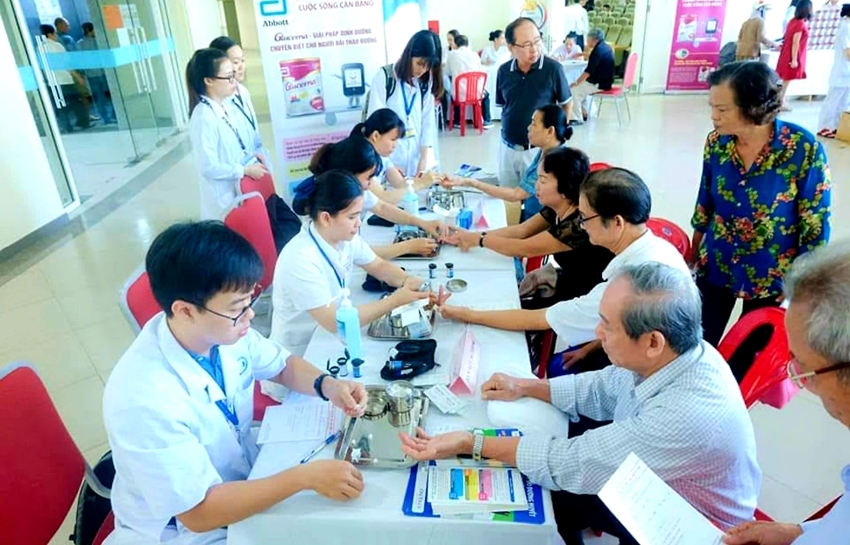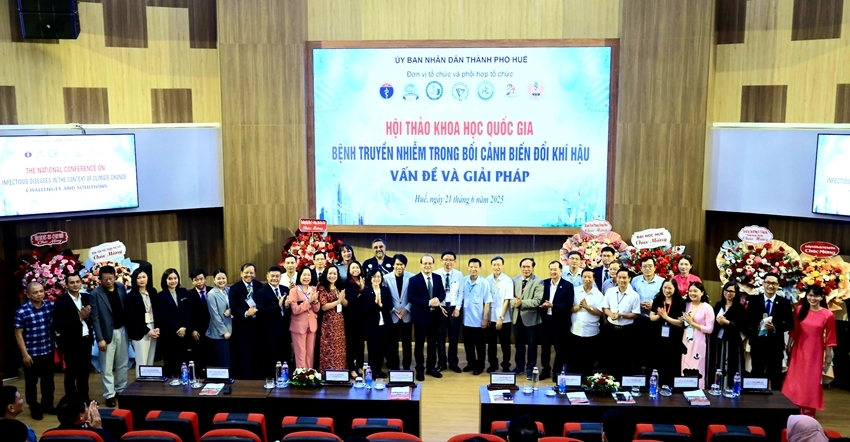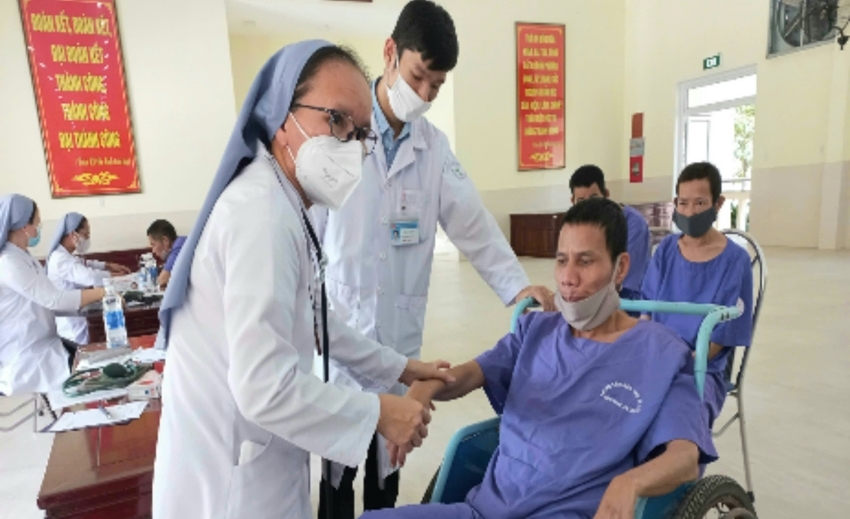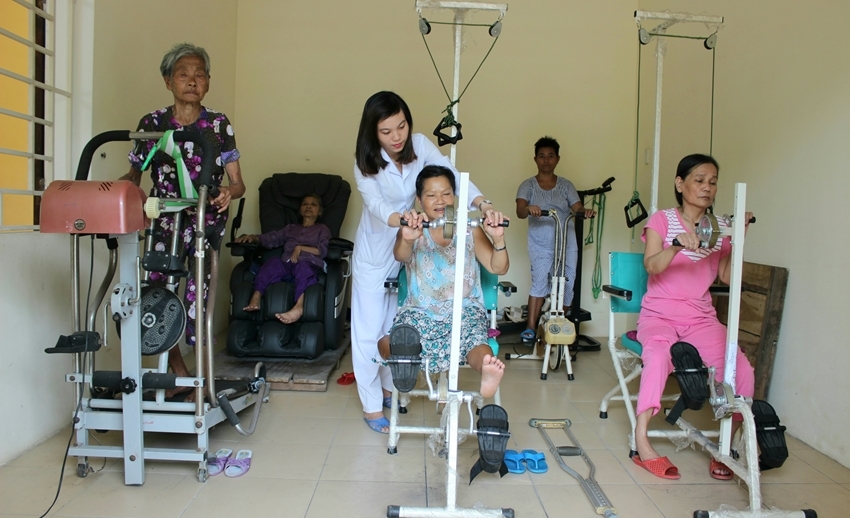 |
| Various types of infectious and non-infectious diseases emerge due to the impact of climate change |
Emergence and re-emergence of diseases
Dr. Ho Dac Thai Hoang, President of the Union of Associations, stated that we are living in an era where climate change is profoundly affecting all aspects of life, with significant impacts on public health. The rise in global temperatures, extreme weather events, and changes in ecosystems create favorable conditions for the emergence, development, and spread of infectious diseases, especially those originating from animals and vector-borne diseases.
According to Assoc. Prof. Dr. Tran Xuan Chuong, Department of Infectious Diseases – Tuberculosis, University of Medicine and Pharmacy, Hue University, climate change not only accelerates the spread of infectious diseases like dengue fever and hand-foot-mouth disease but also increases non-communicable diseases such as cardiovascular, respiratory conditions, and mental disorders. Climate change also causes the emergence and resurgence of novel and re-emerging diseases. For example, new diseases include severe acute respiratory syndrome (SARS) caused by the coronavirus, dengue fever, HIV/AIDS, Mpox... Some important re-emerging diseases include drug-resistant tuberculosis, cholera, malaria, dengue hemorrhagic fever...
The 2025 national scientific conference on the theme “Infectious Diseases in the Context of Climate Change: Issues and Solutions” demonstrates urgency and strategic foresight in raising awareness, promoting coordinated action, and developing cross-sector collaboration networks to protect community health from the growing challenges posed by climate change and infectious diseases.
The event attracted nearly 70 scientists, with 39 presentations and 23 poster sessions covering diverse, in-depth topics presented by domestic experts and researchers from universities such as Chulalongkorn, Mahidol, and Naresuan (Thailand).
 |
| Scientists and managers from within and outside the country participated to share, discuss, and explore solutions at the conference |
Adopting the “One Health” approach
This conference particularly addressed the "One Health" approach, a comprehensive, effective method that requires interdisciplinary collaboration to tackle challenges to human, animal, and environmental health. Since 2022, the Food and Agriculture Organization (FAO), the United Nations Environment Programme (UNEP), the World Health Organization (WHO), and the World Organisation for Animal Health (WOAH) have partnered as the "Quadripartite" to promote the One Health approach globally.
Prof. Dr. Vo Van Thang of the Hue Public Health and Preventive Medicine Association shared that while challenges remain, many achievements have been made through the One Health approach in controlling zoonotic diseases involving domestic animals and wildlife (SARS, H5N1 bird flu, MERS-CoV, Ebola, streptococcal infections in pigs, liver flukes, rabies...) and in improving nutritional conditions via agriculture, environmental impact assessments...
 |
| Many solutions were proposed at the conference to effectively protect public health together |
Drawing on the latest scientific evidence and case studies, Assoc. Prof. Sarawut Thepanondh from the Faculty of Public Health, Mahidol University, Bangkok, Thailand, emphasized the urgent need for integrated policies that simultaneously address environmental and health challenges. He argued for interdisciplinary cooperation, the development of early warning systems, and the implementation of sustainable solutions to reduce risks from this interconnected health crisis.
At the conference, scientists shared and discussed important topics such as systems thinking and cross-sector cooperation to prevent epidemics, particularly infectious diseases amid climate change; the importance of nutrition in boosting immunity and preventing infections; and the role of technology, such as e-health literacy, in enhancing public self-care...
 |
| Protecting people’s health from the effects of climate change requires intersectoral, regional, and transnational collaboration |
In addition, cross-sector and interdisciplinary coordination in the “One Health” approach was recognized as a key strategy for preventing nearly 100 zoonotic diseases amid the direct impacts of climate change on food security, the environment, and water resources in Vietnam.
Studies on newly emerging and re-emerging infectious diseases show close links with fluctuating climate factors, helping to analyze seemingly old problems that now arise in new contexts. For instance, waterborne diseases become more common during rainy and flood seasons, clearly affecting economic and environmental factors such as living standards, access to clean water, and changes in dietary behavior.
With high-quality scientific reports from reputable researchers across various disciplines in health and the environment, in-depth discussions, and poster sessions, the conference brought forth new knowledge, creative and useful solutions, and strengthened interdisciplinary collaboration among organizations and experts. This serves as a solid foundation for building effective strategies to protect community health in the ASEAN region and beyond as climate change becomes increasingly complex.